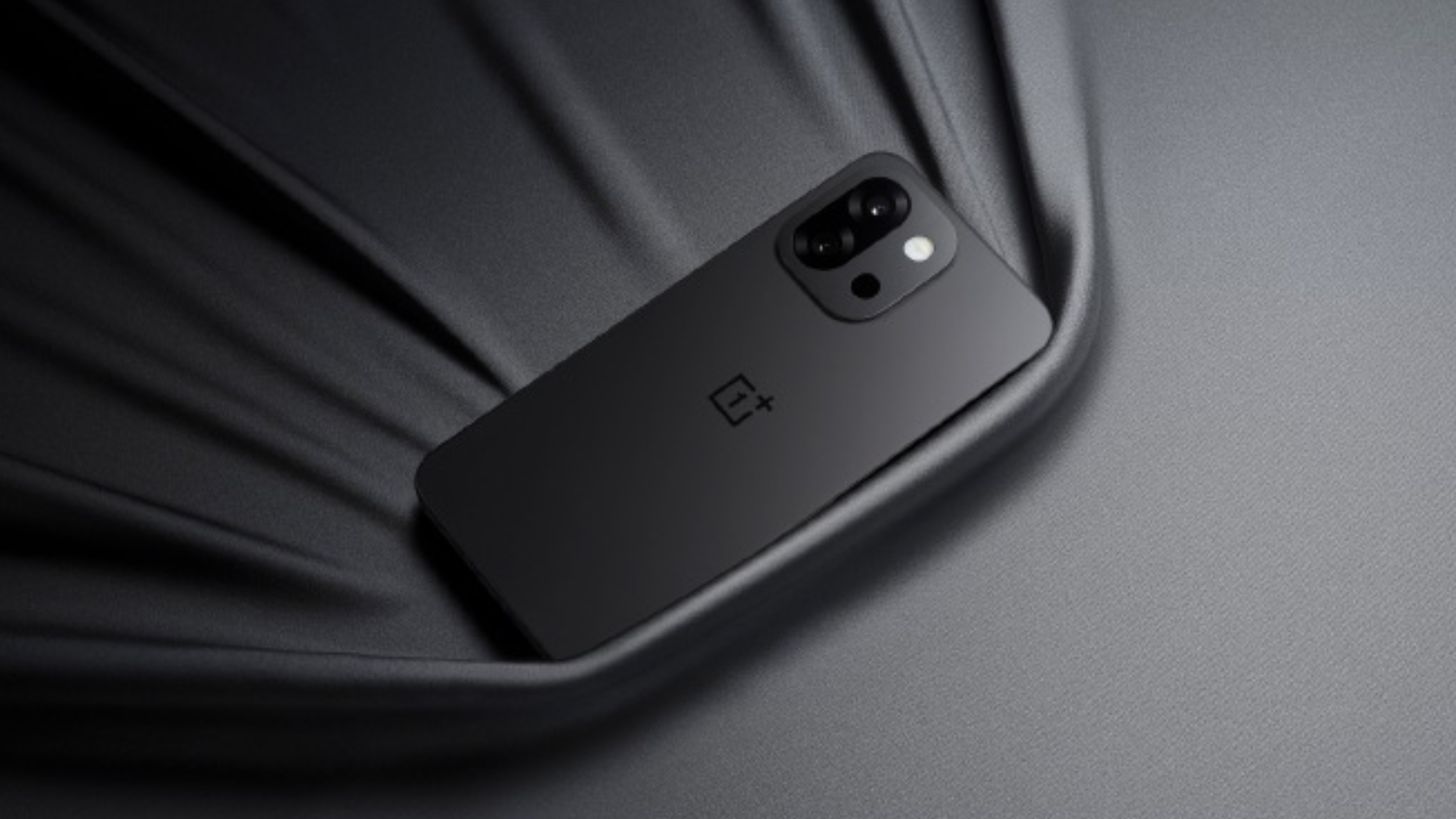Lookout Mobile Security has whipped up quite the report comparing both the Android Market and Apple's App Store in pretty much every way you can imagine -- and probably some you can't. Their "App Genome Project" (lets call it "AGP" from here on out) compared various metrics between Aug. 2010 and Feb. 2011 to get a six-month spread of data. The most basic comparison between the two is raw numbers of apps, which you can see in graph form above. The Android Market added 50k apps to reach about 90k during the time frame while the App Store added 100k to reach over 350k total apps.
On the dev side, just over four thousand developers were signed up for Android during the time period, while about 24 thousand were registered for iOS. Interestingly, the average number of apps per developer was higher on Android at 6.6 as opposed to 4.8 apps per developer on the iOS side. There is a ton more to go over, so join me past the break. [Lookout]
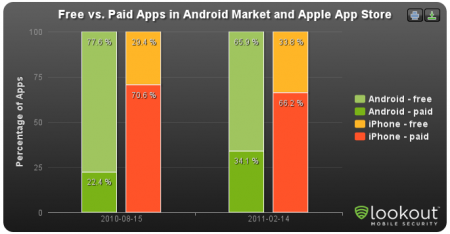
Another area the AGP investigated was the relative amounts of paid apps in each app library. It is well known that the Android Market is mostly comprised of free apps and has long been used to knock the platform as a whole. The AGP's numbers confirm this, but do show a huge growth in percentage of paid apps in the Android Market over the last six months. The share of paid apps jumped from about 22% to over 33% for more than a 50% growth. The App Store more or less held steady with just over two-thirds of all apps having a price tag. In addition, they noted that the average price of paid apps in the Android Market increased as the share of apps priced at $.99 or less dropped from 60% to 37%. Overall this is great news for the Android Market as it shows that higher-value applications are coming to Android in increasing numbers.
Another long-held idea about the Android Market is that in-app advertising is the way to go for most free apps. The data supports this to an extent as well, with nearly 42% of all free Android apps implementing AdMob's advertising APIs. AdMob had a 17.5% share in free iOS apps and Apple's own iAds platform had 15% adoption. The big winner here is Google, who recently bought AdMob and is perfectly happy with making money from both iOS and Android in-app advertising.
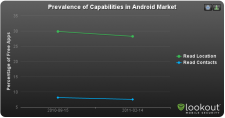
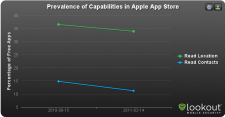
Perhaps the most shocking data the AGP collected was the relative number of applications on both platforms that collected private information. A higher percentage of free iOS apps were found to have access to both your location (read: GPS) data and your contacts information than free Android apps. On the positive side, the percentage of total apps doing so saw drops in both the Android Market and the iOS App Store. Still, these numbers are probably too high so it is important to scan the permissions you give each application before installing it regardless of your platform of choice.
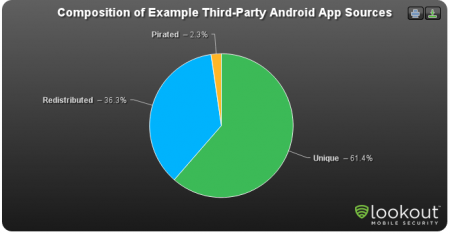
The final major comparison the AGP did was look at the composition of third-party application stores for both platforms. Unsurprisingly, the main purpose of the unofficial Android app stores was to provide support for regions that Google has yet to include in the Android Market. For iOS, the driving factor was providing a home for applications that required jail-breaking or were simply rejected by Apple's App Store curators. In both cases, the relative number of pirated applications was found to be quite low. However, many of these pirated apps were found to request more permissions than the original app so users of both iOS and Android should be cautious when using these third-party stores. Plus, you know, stealing is bad.
Taken as a whole, there are some positives and negatives to be taken from these numbers. Apple's iOS platform is still the clear leader in the app space in nearly every major comparison -- total apps, number of developers, and share of paid apps. Still, Android has seen healthy growth in these areas, especially in the number of paid apps available. With over 300,000 Android devices being activated daily and the upcoming flood of Honeycomb tablets, it is likely Android will see a healthy boost in developer numbers and interest in the coming months. There are several more pretty graphs and more lovely hard numbers past the source link if you still want more detail. [Lookout]
Be an expert in 5 minutes
Get the latest news from Android Central, your trusted companion in the world of Android
Have you listened to this week's Android Central Podcast?

Every week, the Android Central Podcast brings you the latest tech news, analysis and hot takes, with familiar co-hosts and special guests.

